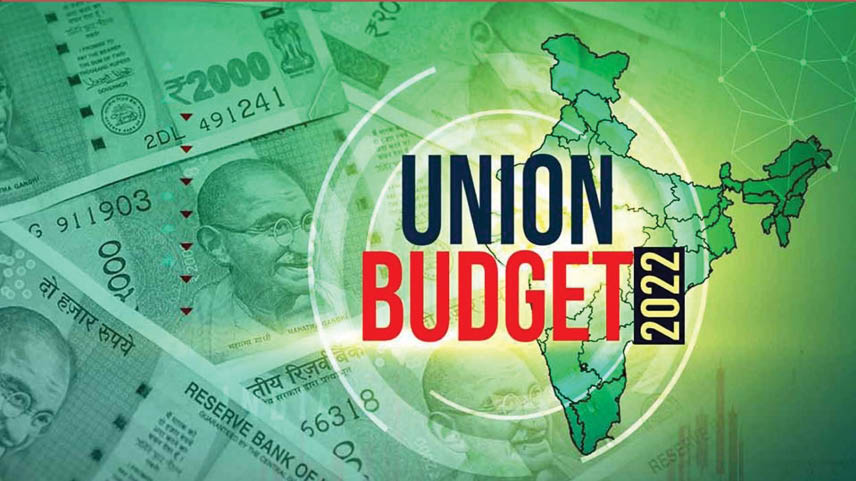Khushroo B. Panthaky is a Mumbai-based Chartered Accountant, with 37 years of professional expertise.
The much-awaited Union Budget 2022 provides an impetus for economic growth. It emphasises on planned urbanisation, domestic manufacturing, digitization and rural upliftment, which would ultimately lead to accelerated economic growth. The fiscal deficit should eventually consolidate, given strong economic recovery, robust forex reserves, and a sustainable growth in exports / revenue collections. Despite the impact of the pandemic, the economy remains resilient and has continued to grow. From a GDP standpoint, India ranks 5th globally and is not very far from emerging as the 3rd largest economy.
Personal Taxation: Status quo has been maintained on the tax rates for individuals. Some more benefits include:
Reduction Of Surcharge On Long Term Capital Gains: In a welcome relief for taxpayers earning income above INR 2 crores, the rate of surcharge on gains from any long-term capital assets have now been capped at 15%. The capped rate was earlier applicable only on long term capital gains from listed securities. The capping of surcharge has brough relief to high net-worth individuals, who were earlier subjected to higher rates of surcharge.
Filing Of Updated Return: The budget proposes to allow a taxpayer to file an updated tax return within two years from the end of the relevant assessment year, where any income has been under reported. When reporting such additional income, the taxpayer would also be required to pay additional tax at the rate of 25% (of the applicable tax and interest) if the updated return is filed within 12 months or 50% if the updated return is filed between 13 and 24 months from the end of relevant assessment year. However, the updated return cannot be filed to claim additional loss or decrease the tax liability. The move is a welcome step to promote voluntary compliance and reduce avoidable litigation.
Exemption Of Amount Received On Account Of Covid-19: Through a press statement, the Finance Ministry had announced that the amount received by a taxpayer for medical treatment from the employer or from any person for treatment of COVID-19 shall not be considered as taxable. Further, an exemption was extended to ex-gratia payments received by family members of an individual from the employer of such individual or from any other person, on the death of the individual on account of COVID-19.
Relief To Taxpayers For Maintenance Of Dependent With Disability: Currently, deduction is allowed to the taxpayer (parent/guardian) for an amount paid as premium towards a scheme for maintenance of disabled dependent, where such dependent is eligible to receive lumpsum or annuity upon the taxpayer’s death. It is proposed to extend the deduction, even if the disabled dependent receives lumpsum or annuity during taxpayer’s lifetime, on their attaining the age of 60 years, and the premium deposit to such scheme has been discontinued.
Taxation Of Virtual Digital Assets (VDA): Provisions for taxation of income from transfer of VDAs have been introduced. Crypto and other similar currencies, non-fungible tokens, etc. are covered within the ambit of VDA. Any income from transfer of VDA would be taxed at the rate of 30%, without deduction for any expenditure (except the cost of acquisition). Loss from VDAs can neither be carried forward nor be set off against any other income. TDS at 1% on sale considerations would be applicable on payments subject to certain threshold.
Enhanced Deduction For Employer’s Contribution To NPS For State Government Employees: Deduction of employer’s contribution to National Pension Scheme (NPS) for State Government employees was restricted to 10%. This limit has been increased to 14%, in order to bring parity with Central Government employees.
Most of the above changes are applicable from Assessment Year 2023-24, as the Bill will become law, once approved by the President. There had been expectations from some pockets for an enhanced standard deduction and/or a higher Sec 80 C deduction, given that majority of the individuals could have been positively impacted in case such popular expectations were met. However, the same may not be too far off, given that the next two Union Budgets could be able to win the hearts of the masses at large, prior to the main national event in 2024.
(Source: Union Budget 2022-23: Comprehensive Analysis Document issued by Grant Thornton Bharat LLP)
- દિકરી એટલે બીજી માં… - 20 April2024
- નાગપુરની બાઈ હીરાબાઈ એમ. મુલાનદરેમહેરનો ઇતિહાસ - 20 April2024
- વિશ્વ ભારતી સંસ્થાન દ્વારા રતિ વાડિયાનુંસન્માન કરવામાં આવ્યું - 20 April2024
